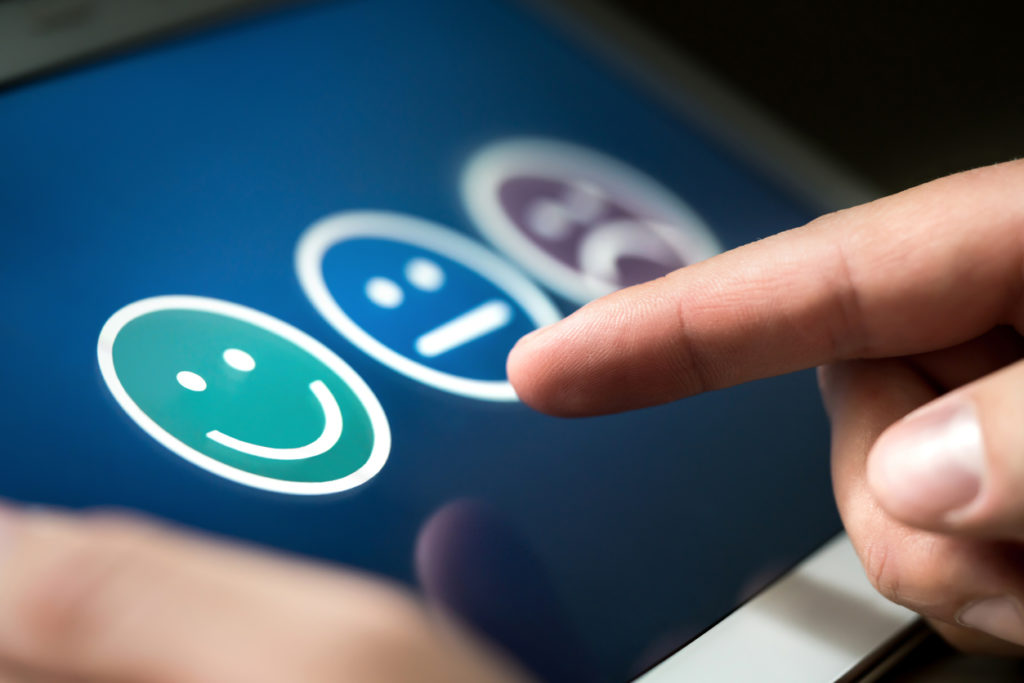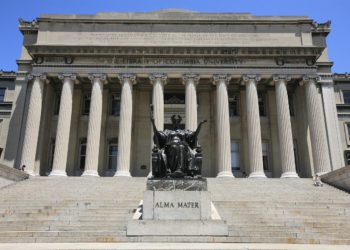The question of whether libraries can – or even should – be “neutral” has been a difficult and controversial one for years. It is now becoming even more so as book bans become more prevalent and command more public attention. Recently, the political Right has increased its efforts to get books on various topics pulled from library shelves, especially in public and school libraries; the Left, on the other hand, generally engages in book banning from a different angle, trying to stop books from being published, calling for them not to be sold, and retroactively censoring books already published. In this politically charged context, the American Library Association offers an incoherent advocacy message, on one hand asserting that libraries must provide “an impartial environment” that offers “information spanning the spectrum of knowledge and opinions,” while on the other decrying “neutrality rhetoric” in librarianship for its role in “emboldening and encouraging white supremacy and fascism.”
A fundamental question remains insufficiently examined: in the context of libraries, what does “neutral” actually mean? Are there ways in which libraries can and should be “neutral,” and ways in which they should not? This post from several years ago examined these questions – ones that seem even more urgent in the current moment than they did then.
Libraries and the Contested Terrain of “Neutrality”
“Are libraries neutral?” This is the question that was posed at the ALA Midwinter President’s Program in Denver a few years ago. A diverse panel of librarians was asked to take turns responding to that question, with results that were sometimes very interesting and sometimes fairly predictable.
There was a very big problem, though, and it lay in the organizing question itself. One can’t really answer it meaningfully without first asking a clarifying question: “neutral” about what? The lack of clarity on this point led to what looked on the surface like a wide variety of opinions on the issue of whether or not libraries can or should be “neutral,” whereas in fact it was—to a very real extent—an example of different people responding to different questions, all of them inferred from the organizing question “Are libraries neutral?”

For example, James LaRue responded as if the question were “Do libraries discriminate on the basis of belief, speech, or background when it comes to services, access to facilities, and collections?” He answered no, saying that “neutrality is about the refusal to deny people access to a shared resource just because we don’t like the way they think.” I would summarize LaRue’s view as “Libraries are neutral in that we treat all patrons equally regardless of their beliefs; this is a core principle of intellectual freedom.” (Of course, neutrality may be “about” access to library resources and services, but it is also about other things, as we shall see.)
On the other hand, Chris Bourg (director of libraries, Massachusetts Institute of Technology) responded as if the question were “Can the library be considered neutral when many of its characteristics are the result of racist and oppressive systems, and when it takes a specific stance on issues like the importance of offering multiple points of view?” Her answer was no; in these important senses libraries are not neutral.
Em Claire Knowles (assistant dean for student and alumni affairs, Simmons School of Library and Information Science) responded to the question by characterizing “neutrality” as “a goal that must be continually sought, an aspiration that must be regularly renewed and reimagined so as to remain relevant to the institution and to the community it serves.” Knowles believes “neutrality” is reflected in the library’s choice to pursue a “clearly stated, unbiased, and balanced collection policy” and to provide “safe, responsible places for diverging opinions” — while at the same time not pretending that librarians “do not have social goals” or should be “indifferent to injustice.” Knowles, it seems to me, sees “neutrality” primarily as a lack of bias, and as an ideal to which libraries should aspire in order to ensure that they serve their diverse communities well and live up to their expressed values.
In other words, all on this panel were asked the same question, but all answered very different ones.
In some ways neutrality in the library is clearly a very bad idea — and yet in some important ways, it’s absolutely essential.
This isn’t a technical semantic point, because in some ways neutrality in the library is clearly a very bad idea — and yet in some important ways, it’s absolutely essential. And since the issue of libraries and neutrality keeps coming up, it seems like a good idea to try to parse it a bit more carefully. In what senses or contexts is neutrality essential, and in which is it specious or ill-advised?
For example: if the question is “Do libraries take a neutral stance on the issue of literacy?”, then the answer is clearly no. Libraries actively promote literacy, and treat illiteracy as a problem to be solved. If the question is “Do libraries take a neutral stance on the issue of racial diversity?”, then again the answer is clearly no—the American Library Association’s Core Values Statement is admirably clear and forceful on this point, and I don’t think I know a single librarian who would disagree with it. The same can be said for questions about equity of access, social responsibility, the value of education, and the importance of privacy. On all of these issues it can confidently be said that libraries take a non-neutral stance, in that we stand in support of these things. In the context of these and other broad and very important questions, the library is not – and arguably must not be – neutral.
However, there are other important contexts for the concept of neutrality. There are many questions and issues on which it would clearly be problematic for any library to abandon neutrality by demonstrating bias toward or against a specific position.
For example, consider political candidates. Should the library support one over another? The easy answer to that question is “of course not; that would likely be illegal in cases where the library is a public institution, and it would endanger the nonprofit status of private libraries.” Fair enough, but let’s bear in mind that the library doesn’t have to explicitly and formally endorse a candidate in order to adopt a position of bias. This can be done more informally (even sneakily) by, for example, adding to the collection books that are supportive of one candidate and declining to add books that are critical — or by loaning meeting space to groups that support one candidate while excluding groups that support the other. Or it can be done more insidiously still, for example if library leadership sends a post-election message to the staff expressing solidarity with those who are celebrating (or lamenting) the election’s outcome. (The very clear message in this case being: “If you feel differently than the library’s leadership does about how the election turned out, you do not belong in this library.”) Not only on candidates but also on many specific political and social issues generally, it seems clear that in order to serve all of its patrons equitably and to provide a safe and supportive environment for all of its staff, the library must maintain a neutral stance.
So maybe the solution to this conundrum is easy after all: when it comes to big, broad issues such as those outlined in the ALA Code of Ethics, libraries should take a clear position; when it comes to narrower, more specific political and social issues, libraries take a stance of neutrality so as to make room for a variety of views and perspectives and provide equal support to all members of their communities.
But hang on: is it really that simple? Is it possible that there are at least some specific social issues on which the library definitely should take an explicit and non-neutral position? This is where things get tough. For example, virtually all of us who work in libraries would, I’m sure, agree that racism is bad, and should be opposed. Shouldn’t the library take a firm position against racism? And how about child abuse, or sexism? How can the library fail to take a stance against these things?
Few, if any, would say “racism is a good thing.” But reasonable people might disagree as to whether a particular book is racist.
There’s a problem here, though, and that is that the population any library serves will not uniformly agree on how things like racism, sexism, and child abuse should be defined—and depending on how they are defined, there may be a variety of differing viewpoints held by reasonable and well-informed people. Few, if any, would say “racism is a good thing.” But reasonable people might disagree as to whether a particular book or group is racist. So while the library might wisely avoid collecting books that celebrate racism as such, it might also reasonably collect books that some members of its community consider to be examples of racism. (And depending on its mission, it might actively collect racist books for educational purposes.) On the issue of child abuse, a library might reasonably collect books that argue against any kind of corporal punishment for children and shelve them alongside books that argue in favor of corporal punishment — not because the library is neutral on the issue of child abuse, but because it declines to take an organizational stance on the question of whether corporal punishment necessarily constitutes child abuse.
Do these issues seem nit-picky and legalistic? If so, then I would suggest that we’re not taking our responsibility as librarians seriously enough. Not all important questions are simple, and “it’s complicated” is not a legitimate excuse for failing to deal with them — not if we are (and want to be regarded as) professionals. These are, in fact, the very kinds of questions that will be considered by people who want to have an intellectually honest discussion of neutrality and bias in the library.
Why does this matter? Because the fact that there are some ways in which the library is not and must not be neutral should not give cover to practices or programs that create bias in areas where the library is and must be neutral. And if the “libraries are not neutral” position is given a halo of righteousness, that of course implies that those who support important aspects of library neutrality are unrighteous: defenders of the status quo, agents of oppression, etc.
The fact that there are some ways in which the library is not and must not be neutral should not give cover to practices or programs that create bias in areas where the library is and must be neutral.
Issues around neutrality and bias matter because they go directly to the core values of librarianship, and to the library’s ability to serve its community. If we actually believe that all members of our community have an equal claim on the library and its resources — if, in the words of the ALA’s official Interpretation of the Library Bill of Rights, we believe that “the essence of equitable library services provides for free access to all expressions of ideas through which any and all sides of a question, cause, or movement may be explored” — then this necessarily implies that we, as librarians, do not believe in putting our own ideological thumbs on the scale of social discourse. Or, as that same Interpretation more pithily puts it, “librarians cannot justly permit their own preferences to limit their degree of tolerance in collection development.” Surely if this is true in the sphere of collection development, it must be equally true when it comes to patron service, use of library spaces, and other aspects of library service and programming.
The reality, in other words, is neither that the library is “never neutral” nor that it is “always neutral.” Our world is much more complicated than that. It would be more accurate to say that “the library sometimes and in some contexts must not be neutral, and in others absolutely must be neutral — and sometimes, it’s hard to say what we mean by ‘neutral’ and sometimes it’s hard to say whether ‘neutrality’ is the right or the wrong stance.”
That makes a terrible bumper sticker, I know. But it makes a much better and more equitable library.
(For a deeper and more rigorous treatment of this issue, I recommend John Wenzler’s essay “Neutrality and Its Discontents: An Essay on the Ethics of Librarianship,” in the January 2019 issue of portal: Libraries and the Academy. Subscription is required, but a preprint version is available here.)
Discussion
7 Thoughts on "Revisiting: Libraries and the Contested Terrain of “Neutrality”"
An important question that is not addressed in this essay is, “is the answer different for different kinds of libraries?”. This essay seems mostly to be talking about public libraries, although it quotes academic librarians. There are 4 major types of libraries in the US: public, school (any level of K-12), academic, and “special” (corporate, hospitals, museums, etc.). I’m an academic librarian and a collections specialist, and I will strongly argue for viewpoint neutrality in academic library collections. Our primary criterion should be whether a given work supports the curriculum and researchers of our institution, current and likely future (there’s a lot of tough discretion and the hardest part of collection development in that “likely future” part).
Not having had children, I don’t feel qualified to speak to school libraries – frankly, in my own K-12 experience, they were worthless and inaccessible anyway; during those years, I relied on the public library.
Public libraries are a tough case, and there are philosophical as well as pragmatic aspects. They rely on taxpayer funding, so maybe their collections should reflect the values of the specific geographic area of taxpayers who fund each one, and if those values are diverse, should reflect that range. But public libraries are more than their collections, as this essay touches on: they are meeting rooms, and child entertainment centers (scheduled “reading hours” performances) and so much more that they probably should NOT be. Public libraries do not build collections for long term value like academic libraries do – a huge portion of their collections budgets go to buying large numbers of copies of some latest bestseller, only to discard almost all copies just a year or two later. That would be anathema (and I mean that word in its strongest sense) to an academic librarian, where we argue about how many if any at all copies of a required textbook we should purchase for a large class.
The ALA supposedly represents all kinds of libraries but its advocacy is heavily dominated by politically active and usually left-of-center public librarians. It’s not surprising that librarians tend to be left of center, because you are talking about very intelligent people with masters degrees who chose a non-profit career path over one that they could probably have made a lot more money in, so they are doing it for moral values, not paychecks. Throughout our society, you tend to find that people who choose non-profit centered career paths tend to be left of center, although that is certainly not guaranteed and obviously depends on the sector (eg religious-affliated non-profits likely go the other way).
As usual, I appreciate Rick’s thorough and calm exploration of a devilishly complex question. (Poor guy would never make it as a polemicist). I generally agree with his outline of the issues – the simplistic question about library neutrality simply isn’t amenable to a yes or no answer. And I agree with Melissa’s point that the question lands differently depending on the type of library (although I wish she hadn’t made the gratuitous swipe against school librarians/libraries). As director of a large academic health sciences library the question of “neutrality” in collection development or provision of services was rarely an issue. But in today’s American deep south (I’m in Alabama), public and school librarians face it in very real and frightening terms every day. The Moms for Liberty, and those who share their views, are very clear in their belief that libraries not only should not be neutral in the senses that Rick suggests they must be, but that they cannot be. They believe that every book buying and shelving decision carries moral weight. Literate people of a liberal bent believe that books have power, but not nearly as much power as those on the right believe they do. I don’t believe that reading Maia Kobabe’s Gender Queer is going to turn a staunchly heterosexual young kid gay, but the MfL aren’t so sure. It’s here where the young librarian trying to run a smalltown public library faces the reality of the question every day. Their job is very much on the line now in Florida and Alabama and Arkansas and elsewhere. Melissa suggests that maybe public library collections “should reflect the values of the specific geographic area of taxpayers who fund each one, and if those values are diverse, should reflect that range…” Sounds sensible, but in reality there is no one clear set of values held by any “specific area of taxpayers”, and acceding to the demands of those who are the loudest will invariably conflict with the values of some of their neighbors. “Neutrality” in this context has to mean collecting broadly across the most contentious issues. That this view of library neutrality is now explicitly illegal in many jurisdictions should alarm librarians, publishers, and writers no matter what their particular setting.
I most definitely agree that acceding to the demands of the loudest is not the way to go, and sadly it seems to be the way the US is going now for both school and public libraries, or at least the part of the US that has disproportionate political power thanks to the pro-slavery Constitional provisions involving the Senate and electoral college.
Re: my “swipe” which I would characterize as “my lived experience”, I really hope school libraries throughout the country are more accessible than they were in my day, when there was basically no time at all from before school through the end of the school day in which a student could use the library on their own. It opened after the first class period and closed at the end of the last, and all students had a specific other place to be during all of the hours in between. So the only time we got to even see the inside of the school library was the once per year our English class had an official “tour” of it. I hope it’s not like that in most schools today.
Literate people of a liberal bent believe that books have power, but not nearly as much power as those on the right believe they do.
Eh, I’m not so sure. If you look at the characteristics of books that lead people of a liberal bent to want to stop them being published or stop them being sold, or to censor them after they’re published, I think it’s hard to avoid the conclusion that they’re just as concerned about the potential negative power of books as people of a conservative bent are — they just tend to be more worried that books can (say) turn people into bigots and fascists than that they can (say) change people’s sexual orientation.
Though in both cases, of course, I think it’s important to avoid lumping a diverse range of “liberal” and “conservative” concerns into an oversimplified single characterization of viewpoint. One liberal may feel that the descriptor “fat” should be removed from a Roald Dahl book because its use will tend to socialize children towards bigotry, while another may be more concerned that it contravenes principles of body positivity generally. One conservative may object to having Gender Queer in a school library because s/he thinks it will lead children to homosexuality, while another may feel that books featuring graphic depictions of sex acts between minors don’t belong in a K-12 setting regardless of the sexual orientation involved.
Thank you for this clear statement of the problem.
I was a public librarian for well over ten years, a special librarian in a law firm for a time, and now for more than two decades an academic librarian. Assuming that the badly-framed question means “Should libraries avoid skewing their professional ideological commitments?” I can answer unequivocally in the affirmative. Libraries should be neutral. And in my experience they are, which is why I stick with them.
I’ve been recently vacationing (whatever that means) in the Monterey, CA, area, where I visited several libraries of various stripes. They were all marvelous and to be sure, neutral, in the best of senses, that sense being that they serve, collect, catalog, afford access to, and manage their collections and other offerings with an eye to wide inclusiveness. This has always been how libraries in my experience operate, well before the I in DEI assumed importance. Yet embracing these values with respect to, say, racist materials, is not deviance from neutrality. “Inclusive” means “inclusive.”
But as business entities, as opposed to professional operations, it is simply impossible for libraries to be neutral. They should not promote illegal discrimination. They must work not to be racist, for instance, and it is of course the case that structures of governance enforce their own ideological commitments, making life worse for some, better for others, and yet never according to a consistently exercised principle. Libraries operate best when they resist the skewed values of these entities, while somehow managing to maintain their ancillary relevance to them.
Like “neutral,” “discrimination” is a misunderstood word. Discrimination is a good thing! I partake of it every day, for example when I choose my way home on the road by picking avenues not cluttered with traffic. But that isn’t illegal discrimination. Stay neutral, and by all means discriminate (just not illegally)!
We had this neutrality discussion in graduate school, before I entered academic libraries: one example was a public library offering their meeting rooms to be reservable to anyone, regardless of the group. Is it neutral to allow a known white supremacy group to use the meeting room? I think of Desmond Tutu’s quote “If you are neutral in situations of injustice, you have chosen the side of the oppressor.” If the library allows hate groups to use their library, marginalized folks might not feel safe using the library and therefore the library is not neutral. My personal opinion.
I guess this just brings us back to the original question: are there ways in which a library should be neutral, and ways in which it should not? I think the first step is acknowledging that this isn’t a simple black-or-white issue — the library is neither “never neutral” nor “always neutral.”
Of course, it’s easy for me to say “this is complicated.” What’s difficult is negotiating these complexities in the real world, when you have to make tough judgment calls that no policy can fully anticipate and when you have different constituencies — all of which have an equal claim on the library’s services — with competing ideas of what the library should do (and maybe even differing opinions as to what constitutes a “hate group”).



